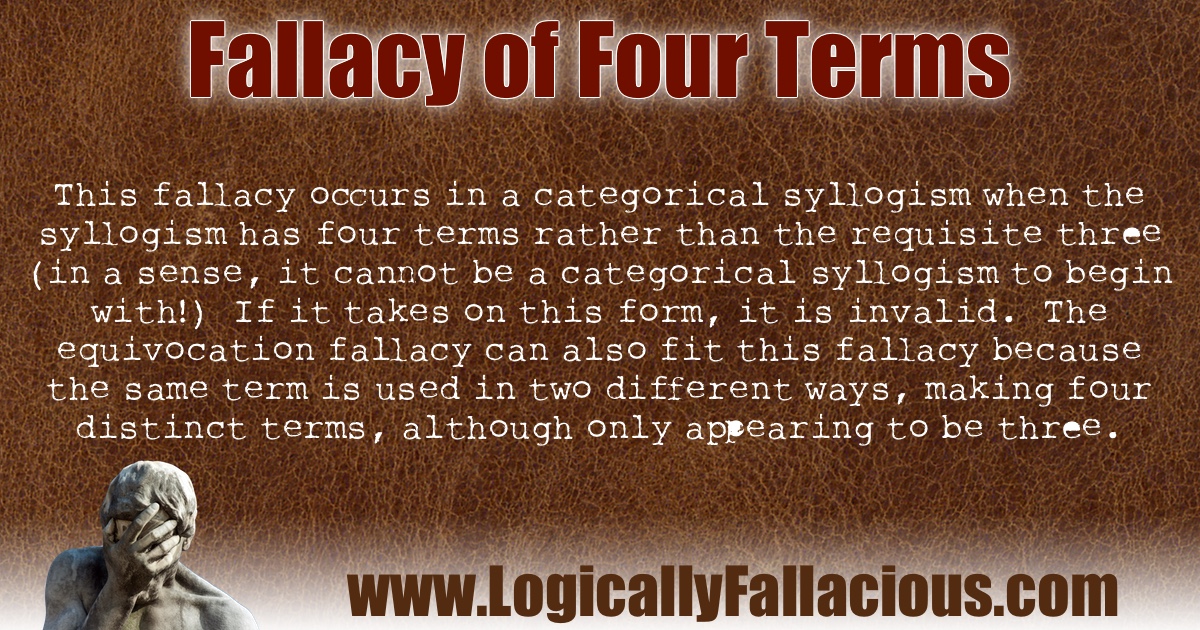quaternio terminorum
(also known as: ambiguous middle term)
Description: This fallacy occurs in a categorical syllogism when the syllogism has four terms rather than the requisite three (in a sense, it cannot be a categorical syllogism to begin with!) If it takes on this form, it is invalid. The equivocation fallacy can also fit this fallacy because the same term is used in two different ways, making four distinct terms, although only appearing to be three.
Logical Form: There are many possible forms, this is one example:
All X are Y.
All A are B.
Therefore, all X are B.
Example #1:
All cats are felines.
All dogs are canines.
Therefore, all cats are canines.
Explanation: When you add in a fourth term to a categorical syllogism that can only have three terms to be logically valid, we get nonsense -- or at least an invalid argument.
Example #2:
All Greek gods are mythical.
All modern day gods are real.
Therefore, all Greek gods are real.
Explanation: Again, nonsense. If we take away one of the terms, we end up with a valid syllogism:
All Greek gods are mythical.
All mythical gods don’t really exist.
Therefore, all Greek gods don’t really exist.
Exceptions: No exceptions.
Fun Fact: Greek gods may not exist, but Greek yogurt does.

References:
Bunnin, N., & Yu, J. (2008). The Blackwell Dictionary of Western Philosophy. John Wiley & Sons.